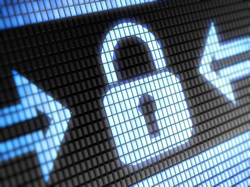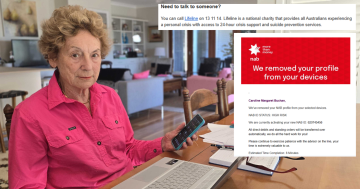Isabelle Lane* says online credit card fraud is on the rise in Australia, so it’s essential we know how to protect ourselves.

Photo: PashaIgnatov
Online credit card fraud rose by a staggering 76 per cent last year, and cybersecurity experts are urging Australians to take simple measures to protect their money.
Analysis of fraud statistics from the Australian Payments Network by online comparison site Finder shows online credit card fraud has surged, from 1.02 million transactions in the 2016–17 financial year to 1.8 million transactions in the 2017–18 financial year.
Australians were conned out of $249 million in the 12 months from 1 July 2017 to 30 June 2018, Finder reported.
The rising popularity of online shopping means Australians are increasingly targeted by cybercriminals, Finder’s Angus Kidman said.
“Fraudsters acquire credit card details, make a small purchase to ensure the card will work and then start making much bigger purchases until the scam is uncovered and the card is cancelled,” Mr Kidman said.
He said security issues were the online payment industry’s biggest challenge.
“You should be just as concerned about leaving your credit card unattended at a bar as you are about using it online,” he said.
Online fraud now accounts for 85 per cent of all fraud on Australian cards, up from 82 per cent year-on-year.
Forget your password: The key to preventing cybercrime
Online fraud is “depressingly common, and should keep everyone up at night”, warns cybercrime expert Julian Plummer, Managing Director of Midwinter Financial Services.
“We’ve all gone digital, our whole lives are digital now,” Mr Plummer said.
“These days it’s hard to see when someone is digitally penetrating your assets, and that mindset shift from physical to digital has really tripped consumers up.”
The simplest way to protect yourself and combat online fraud is to download and use a “password manager” such as LastPass, Mr Plummer said.
“Everyone reuses passwords everywhere and this is what worries me the most,” he said.
Once a cybercriminal gets hold of a password for one online account, it can be easy for them to track down the rest.
“You don’t want them ever to have access to your emails,” Mr Plummer said.
“They can work their way through your life and utterly destroy you.”
A password manager creates, encrypts and saves “gibberish” passwords.
This means you no longer have to worry about remembering a slew of different logins.
“You shouldn’t be able to remember your passwords,” Mr Plummer said.
“If it’s a password you can pronounce, it’s not a password.”
Five tips to protect yourself from credit card fraud
Look for “https” not “http” when online: If you’re using your credit card details online, look for “https://” at the beginning of the website address instead of the previously prevalent “http://”.
The added “S” means extra security.
Review your statements.
Go through your statements carefully, and if you spot a suspicious transaction, report it immediately.
Don’t sign blank receipts.
Some hotels still require their guests to sign blank receipts when they check in.
Never do this, and ask the person you’re dealing with to enter an amount instead.
When you check out, make sure the receipt is ripped up or shredded.
Don’t provide details via email.
Never provide your credit card or bank account details via email.
No reputable seller deals this way, and remember that emails aren’t very secure.
Check your credit.
Obtain a credit report to verify that your details have not been used to open any fraudulent accounts.
* Isabelle Lane is a journalist at The New Daily. She tweets at @isabellelane.
This article first appeared at thenewdaily.com.au.











